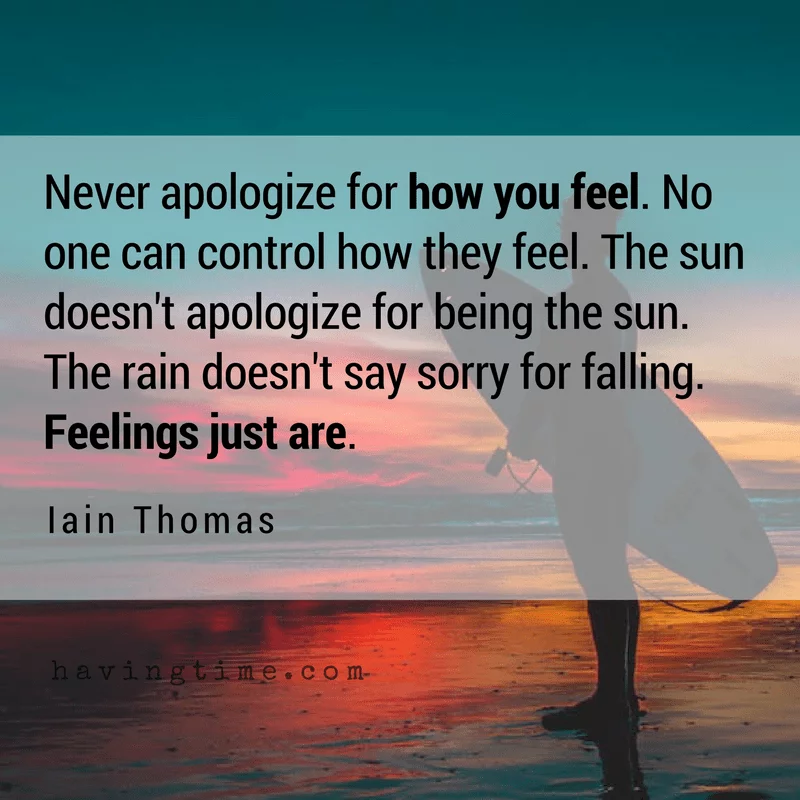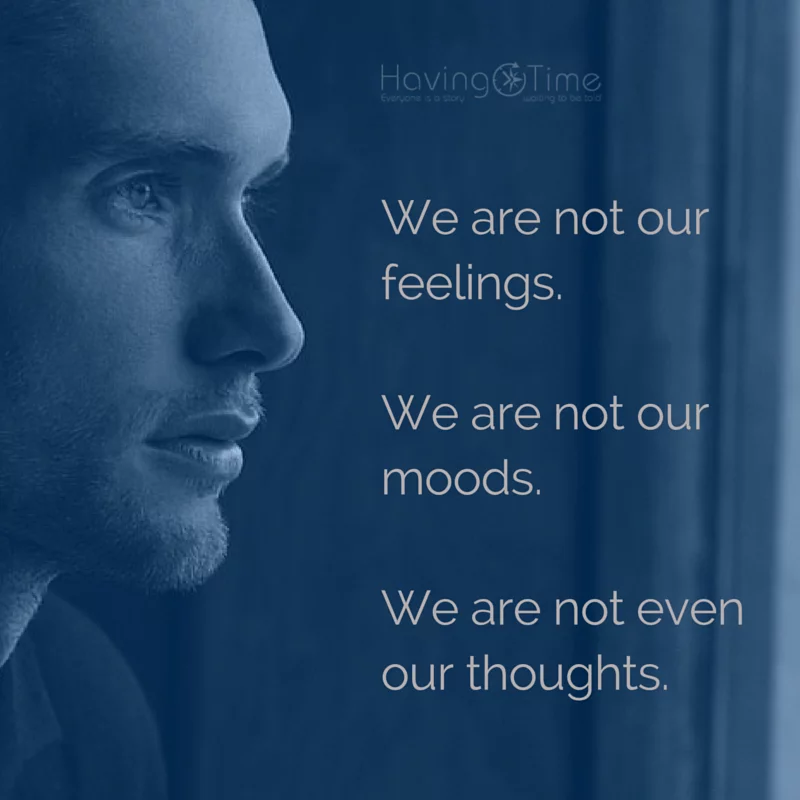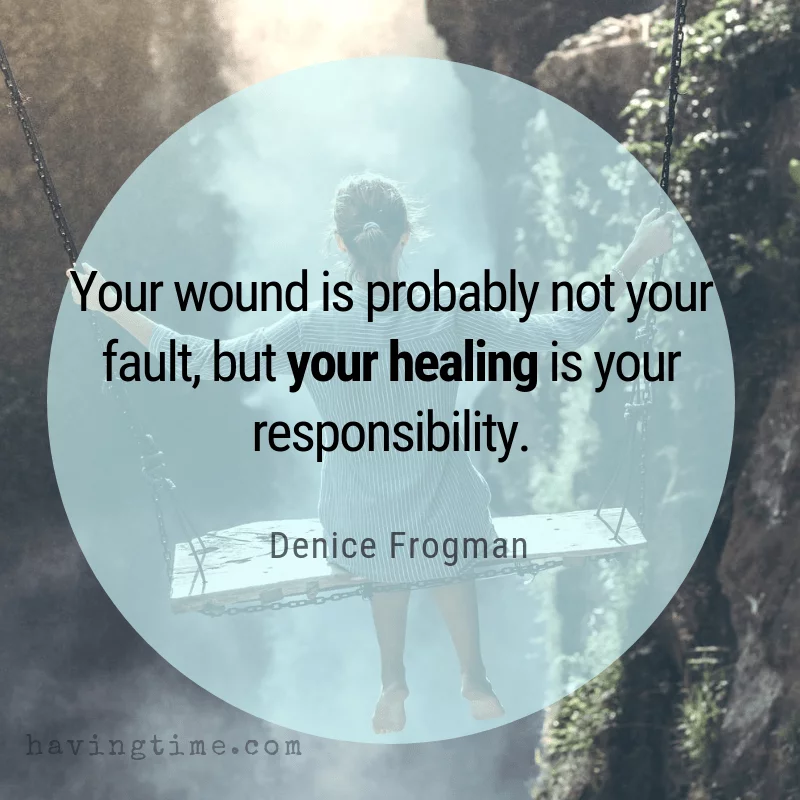Your feelings are valid – all of them. You have every right to feel whatever emotion you want at the moment. And no, you aren’t being too dramatic. You aren’t over exaggerating. You’re feeling. It’s time to learn that your emotions are valid, never be afraid to feel them.

“I don’t need you to understand me, but I need you to accept me.” Unknown
Too much. Drama queen. Overly sensitive. Too intense. Over-reacting. Paranoid. Not normal.
Ever heard any of these? Or similar reactions to how you feel? From others and possibly from yourself? I certainly have.
Growing up, I developed a deep need for validation. Validation of my feelings. I’m assuming this is the same for most children: we look to our parents and other people around us for guidance. We are praised for doing things “right” and told off for doing things “wrong.” I’d say that most of us are raised with a binary view of the world: it is good and that is bad. It is normal and abnormal. Appropriate and inappropriate. And those seem clear cut – only that they aren’t and growing up we are always trying to figure out what is expected of us and it can feel like walking a tightrope.
I remember how, in my relationships, I often felt treated as if I was overreacting to things, being highly strung and high maintenance. In part, I was probably told I was, and mostly, it was how I felt. By the way, I am not saying that my partners (or anyone else) MADE me feel that way. I fully take responsibility for how I chose to explore. And I felt that there was something wrong with me. I felt a certain way, and I was told not to feel that.
Do you think that ever worked if somebody tells you not to feel something: do you magically stop feeling it?
A couple of years ago, my mum passed away. It taught me many things, one of them is how painful and complicated grief is. I was experiencing a mix of feelings, and besides sadness, I also felt guilt and shame around all the things I hadn’t done and the things I had done and that I no longer had a chance to rectify, redo or apologize for. Everyone told me not to feel guilt or shame. Don’t get me wrong: I know that this came from a good place. People were concerned and worried about me and wanted me to feel better. Only that it didn’t help me; feelings cannot always be explained away.
The other day, a friend of mine was sharing her feelings about a loss she recently suffered, and the topic of feeling guilty came up. Ironically, my immediate reaction was to tell her not to feel guilty. When I suddenly remembered my own experience. So here’s what I told her instead and I want to tell you, too:
All your feelings are valid. You don’t need to justify them to yourself and certainly not to others. You don’t need validation, and you need to accept that others might not always be able to understand them. But you can expect them to be accepted for what they are.

I do feel that we can quickly get stuck in our feelings, which in my opinion, isn’t healthy or helpful. Here’s what helped me deal with all my emotions and being ok with them:
Feel it all
Suppressing feelings doesn’t work. They will either build up over time and then erupt in an ugly and way or surface again and again in similar situations that trigger you. Either way, you are needlessly prolonging the effect those feelings have on you. Feelings are what they are. Yes, some feel uncomfortable for us. And it generally takes practice to be OK with that. It’s easy to find distraction these days, but the distraction is only ever temporary.
Remind yourself that everything passes and that you are strong enough to deal with it.
Allow yourself to feel it all.

Show yourself self-compassion
How often do you treat yourself in a way you would never treat a friend?
Dr. Kristin Neff has been researching self-compassion and identified the following three components:
1) Self-kindness. Show yourself kindness instead of harsh self-judgment.
2) Remind yourself that you are not alone. Whatever you are feeling is part of the human experience.
3) Be mindful aka observant of what is instead of exaggerating or ignoring your feelings.
Judgment-free zone
It’s easy to fall into the judgment trap. Comparison is ingrained in our culture, and we tend to be our own worst critic. What if you realized that there are no “right” and “wrong” feelings? What if you accepted all feelings as part of yourself understanding that nothing is needed to be changed and done about it at the moment. Take a breath and show yourself some love.
Examine your feeling
Our feelings are messengers. Check in with yourself and find out what they are trying to tell you. Anger, for example, can be an expression of fear. If we treat anger just like anger without acknowledging the layer of fear underneath, we are not getting to the root of it.
If we don’t allow ourselves to feel all the feelings, we are missing out on a valuable lesson that is buried within. Be curious and open-minded – it might lead you somewhere entirely unexpected!
Move on
Don’t get lost and swept up in feeling the feelings. While that is important, it’s equally important not to get sucked in and swallowed up never to be seen again. Learn the lesson and then let it go.
I appreciate that that isn’t as easy as it sounds. And it’s not necessarily done in an instant. The feelings tend to reappear again and again. If you’ve done the work above, you will recognize the lesson more quickly the next time around, and with time it will get easier to let go.
For me, it works a bit like in meditation –– so when the feeling appears instead of giving it any space and time, I practice detachment and let it float away like a cloud. And yes, that sometimes happens several times a minute! But it lessens and gets less intense with time. It’s a choice I make consciously over and over again.
Dealing with other people’s opinions
There’s no such thing as “too much.” Simple. Whatever you feel, you feel, and nobody can argue against that.
In a lot of cases, people want to help. They want to make you feel better, and sometimes they might be overwhelmed by how to deal with your feelings. I remind myself that people are generally coming from a good place – but that doesn’t mean it’s good for me.
Don’t ever let other people tell you how you SHOULD feel, because there is no “should.” Be clear on boundaries. It’s ok to ask people to keep their opinions to themselves. You get to pick who you want to be around. There is just one way to be you, and there is nothing wrong with that.
Listen and show empathy to others
What happens when we are on the other side? When you are faced with other people feeling or thinking in ways YOU don’t understand? Try to listen before dishing out advice.
Show empathy and compassion. Show that you are trying to relate and that you are taking them seriously. Telling somebody to “get over it” never helps anyone actually to get over it.
Nevertheless, that doesn’t mean that you need to listen to them in endless loops either. We have probably all experienced this, and some people find it hard or it takes a long time to get to the stage of moving on. That is ok, too, but it is also ok for us to communicate our boundaries. Last but not least: you are not responsible for their healing.

Our emotional journey is part of learning to love and accept ourselves. It’s part of personal growth and transformation. My clients sometimes complain that it isn’t “easy.” And I always tell them: And? Why would it need to be easy? Life isn’t easy, but so much of what determines whether or not it is easy is our mindset.
If we accept discomfort as part of our lives and not regard it as something that needs to be avoided at all costs, we’ve already made a massive difference in dealing with our feelings.
Believe in yourself. You got this.
photo source: pexels + giphy

